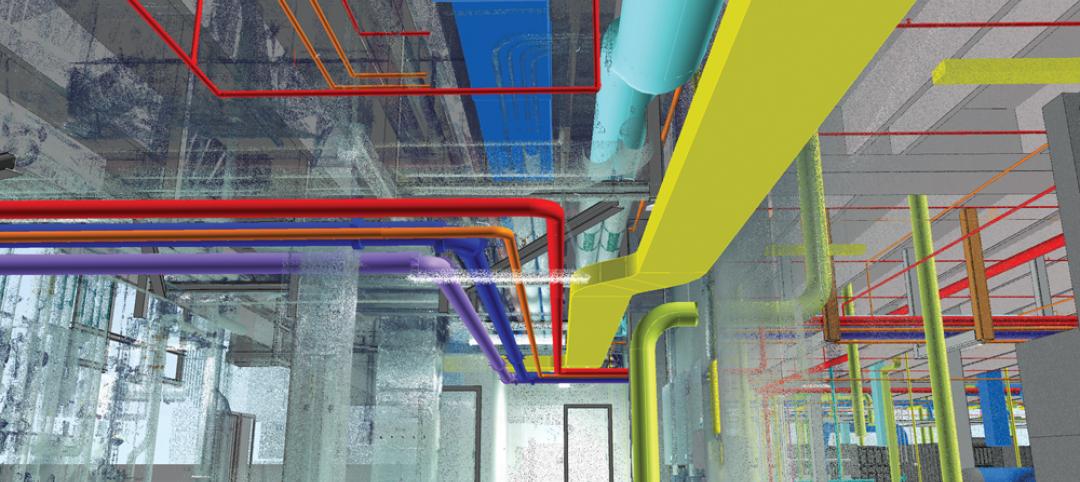The construction industry, whose workforce was decimated during the last recession, is slowly getting back on its feet. However, in certain markets—especially those where oil drilling and production have been prospering—construction workers can still be scarce.
Based on a survey of nearly 1,100 member firms in October, the Associated General Contractors of America (www.agc.org) reported that 83% of respondents were having difficulty finding craft workers, and 61% said other professional positions were hard to fill.
That being said, it appears employment pressures are easing. AGC’S analysis of data from the U.S. Bureau of Labor Statistics finds that construction employers added 12,000 jobs in October, dropping the industry’s unemployment rate to 6.4%, its lowest level since October 2006.
In fact, construction employment in October, at 6,095,000, was the highest it’s been since May 2009, with 231,000 jobs added over the last 12 months, a 3.9% gain.
Residential construction is driving the market’s employment, as 130,600 residential and specialty trade contractor jobs have been added over the past year, representing a 6% increase over the same period in the previous year. Jobs for nonresidential and specialty trades, and heavy and civil engineering, rose by 2.7%, or 99,800, over the past 12 months.
Ken Simonson, AGC’s chief economist, notes that all construction employees worked an average of 39.2 hours per week in October, tying the highest mark since the association has been tracking this data since March 2006. And wages have been rising at their fastest rate—2.6% in the past year—since early 2010.
Still, AGC sees uncertainty in the future construction employment picture, and is calling on government officials to enact measures that would make it easier for school districts, local associations and private companies to establish career and technical education programs.
The Association’s concerns about where the industry is going to find its next generation of labor stem, in part, from its research which shows that its members in the South are most likely to struggle with labor shortages, particularly places like Louisiana where pipeline, refinery, and petrochemical construction jobs have boomed.
That boom has been a double-edged sword, in that the oil industry is grappling to find qualified labor. A recent article posted on the website Industrial Info Resources quotes John Floren, CEO of Methanex, the world’s largest producer of methanol, who said that projected costs for two projects in Geismar, La., rose by $300 million, largely because of labor costs and productivity issues.
And if, as expected, oil-related projects ramp up, labor shortages in Gulf States could become more acute in 2016 and 2017, according to industry observers quoted by Industrial Info Resources.
Related Stories
| Dec 23, 2014
5 tech trends transforming BIM/VDC
From energy modeling on the fly to prefabrication of building systems, these advancements are potential game changers for AEC firms that are serious about building information modeling.
| Dec 22, 2014
What Building Teams can learn from home builders' travails
Commercial and residential construction can be as different as night and day. But as one who covered the housing industry for nearly a decade, I firmly believe AEC firms can learn some valuable lessons from the trials and tribulations that home builders experienced during the Great Recession, writes BD+C's John Caulfield.
| Dec 22, 2014
Skanska to build Miami’s Patricia and Phillip Frost Museum of Science
Designed by Grimshaw Architects, the 250,000-sf museum will serve as an economic engine and cultural anchor for Miami’s fast-growing urban core.
| Dec 22, 2014
Studio Gang to design Chicago’s third-tallest skyscraper
The first U.S. real-estate investment by The Wanda Group, owned by China’s richest man, will be an 88-story, 1,148-ft-tall mixed-use tower designed by Jeanne Gang.
| Dec 19, 2014
Zaha Hadid unveils dune-shaped HQ for Emirati environmental management company
Zaha Hadid Architects released designs for the new headquarters of Emirati environmental management company Bee’ah, revealing a structure that references the shape and motion of a sand dune.
| Dec 19, 2014
Chicago Architecture Biennial to hold 'Lakefront Kiosk Competition'
The first Chicago Architecture Biennial will take place from October 2015-January 2016, with a theme of "The State of the Art of Architecture."
| Dec 18, 2014
Frank Lloyd Wright's Taliesin West to be recreated—with LEGO
Containing more than 180,000 LEGO bricks in 11 colors and 120 different shapes, the model measures eight by four feet and is made entirely of standard LEGO parts.
| Dec 18, 2014
11 new highs for tall buildings: CTBUH recaps the year's top moments in skyscraper construction
The Council on Tall Buildings and Urban Habitat cherrypicked the top moments from 2014, including a record concrete pour, a cautionary note about high-rise development, and two men's daring feat.
| Dec 18, 2014
International Parking Institute and Green Parking Council collaborate with GBCI
The new collaboration recognizes importance of sustainable parking facility design and management to the built environment.
| Dec 18, 2014
Top 10 sports facilities of 2014: Designboom ranks the year's best projects
The list includes some of the year's epic stadiums, such as World Cup Stadium Arena de Amazonia in Manaus, Brazil, and smaller projects, like the Spordtgebouw Sports Centerin the Netherlands.
















